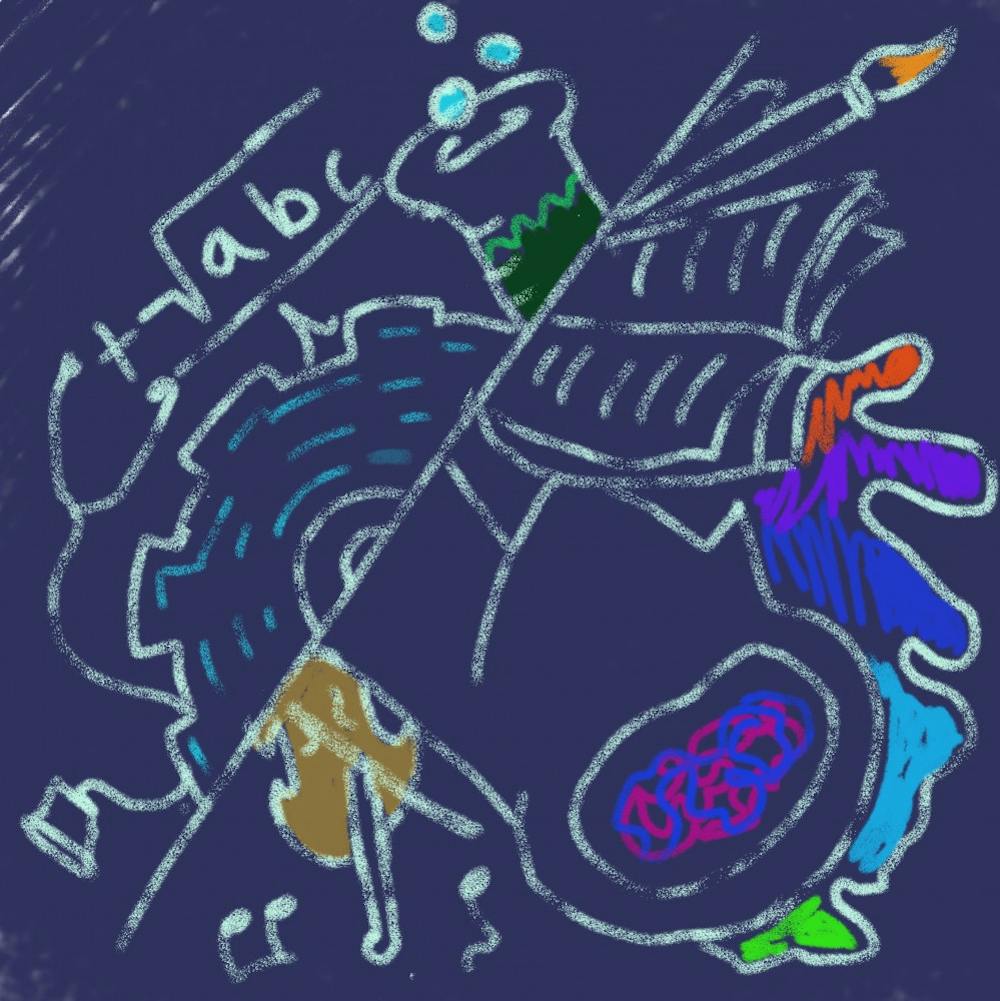The college major is the big question when it comes to applying to college, choosing a career and navigating awkward conversations with distant relatives. It separates students by school and discipline, preparing them for the future. Unfortunately, not all majors are treated the same way.
It seems like there is a distinct binary in what students decide to study in college between science and humanities.
Many majors fall outside of these two categories, of course, but these two stand out because they seem to be diametrically opposed. Parents are often proud to tell their friends that their child is a future engineer, but might keep it to themselves if their child is a future graphic designer.
Science, technology, engineering and mathematics are certainly important subjects. They are responsible for the technology and advancements that keep us alive and even entertained. However, society often treats STEM majors as if they are the most important majors. Humanities majors are often considered a joke.
Starting at a young age, STEM is emphasized to us in schools. The stereotype is that smart kids are the ones who are good at math or science, while the students who excel in English or writing tend to have their achievements overlooked. In the United States’ quest to push its youth into STEM fields, it has created a culture where the humanities are no longer considered relevant.
The United State began to emphasize STEM in schools during the Cold War. Russia was the first country to launch a satellite into orbit, and the United States did not want to be outdone. By emphasizing and subsidizing STEM for the next generation, the United States hoped to stay competitive in the space race.
Since then, the emphasis on STEM has not stopped. With elementary schools and high schools continually facing budget cuts, they are forced to cut classes. The first to be cut are always the humanities classes. They are considered less important by the school, so when it is time to decide what class goes and what class stays, the humanities class is canceled. This furthers the cycle of STEM superiority. Students who may have wanted to pursue a career in the humanities now may never realize their passion.
The argument against the humanities is often that people think they are impractical majors. A common phrase people majoring in the humanities hear is, “So, what are you going to do with your degree?” This is often said in an accusatory tone. The common misconception is that you can’t find a job unless you have a STEM degree.
This, however, is just not the case. For example, someone with an English degree is not destined to be an English teacher. Skills learned while pursuing an English degree — writing, critical thinking and analysis — are highly desirable for employers. Someone who majored in English can go into finance, technology or even law.
But, let’s say a person with an English degree does want to be an English teacher. Someone has to be. We should respect their choice and their value to society. Every job is important for our society to be cohesive.
When it comes to creative arts, people are even more skeptical. “Can you get a job with that degree?” is something people pursuing an arts major often hear. The answer, though, is yes. Look around you. Creative art is everywhere: advertising, websites, commercials, novels and video games, just to name a few. Especially in the age of technology, there are many opportunities for artists to come up with new ways to create.
The humanities are valuable. It is important to study what makes us human in more ways than physical. Philosophy, gender studies, English and studio art all have a place in our society. The STEM field may be responsible for new breakthroughs and inventions, but the humanities track the progress of humanity and estimate the future.
Studying humans’ social interactions allows us to become better as a species, and analyzing and creating art shows our emotions, desires and anxieties throughout time. Without humanities, we are missing a vital part of culture. We need to educate the future so we aren’t doomed to repeat ourselves.




